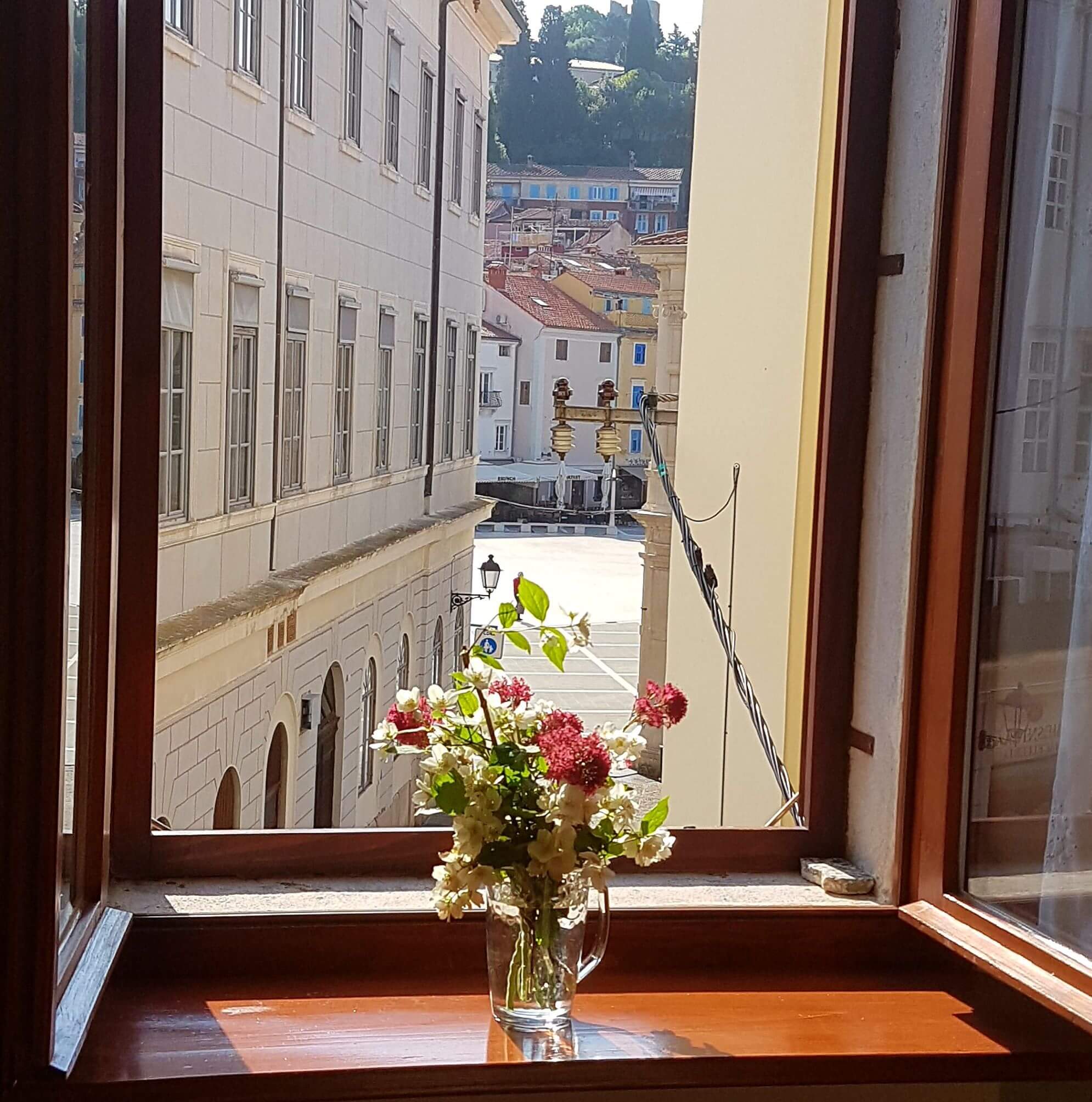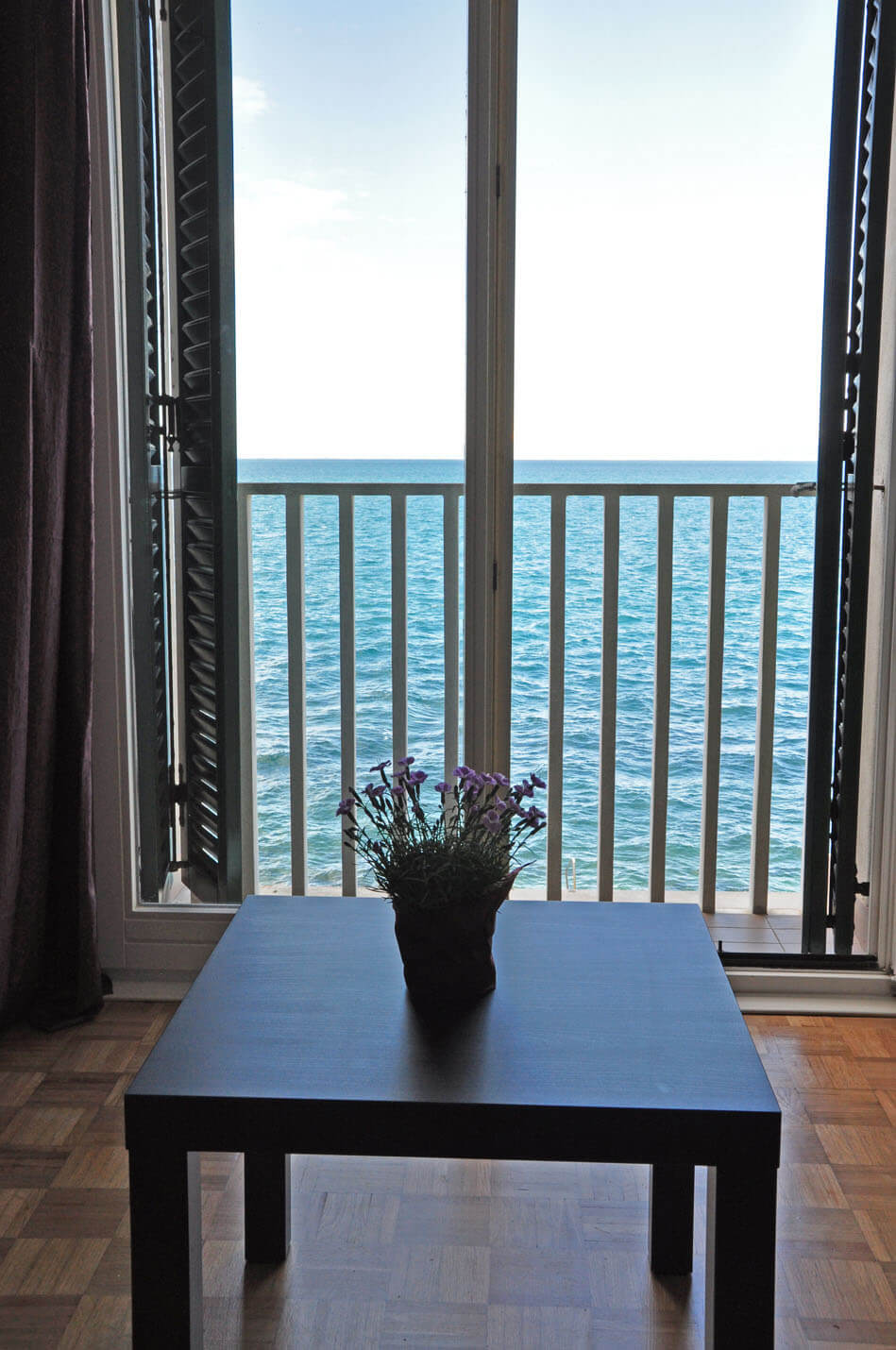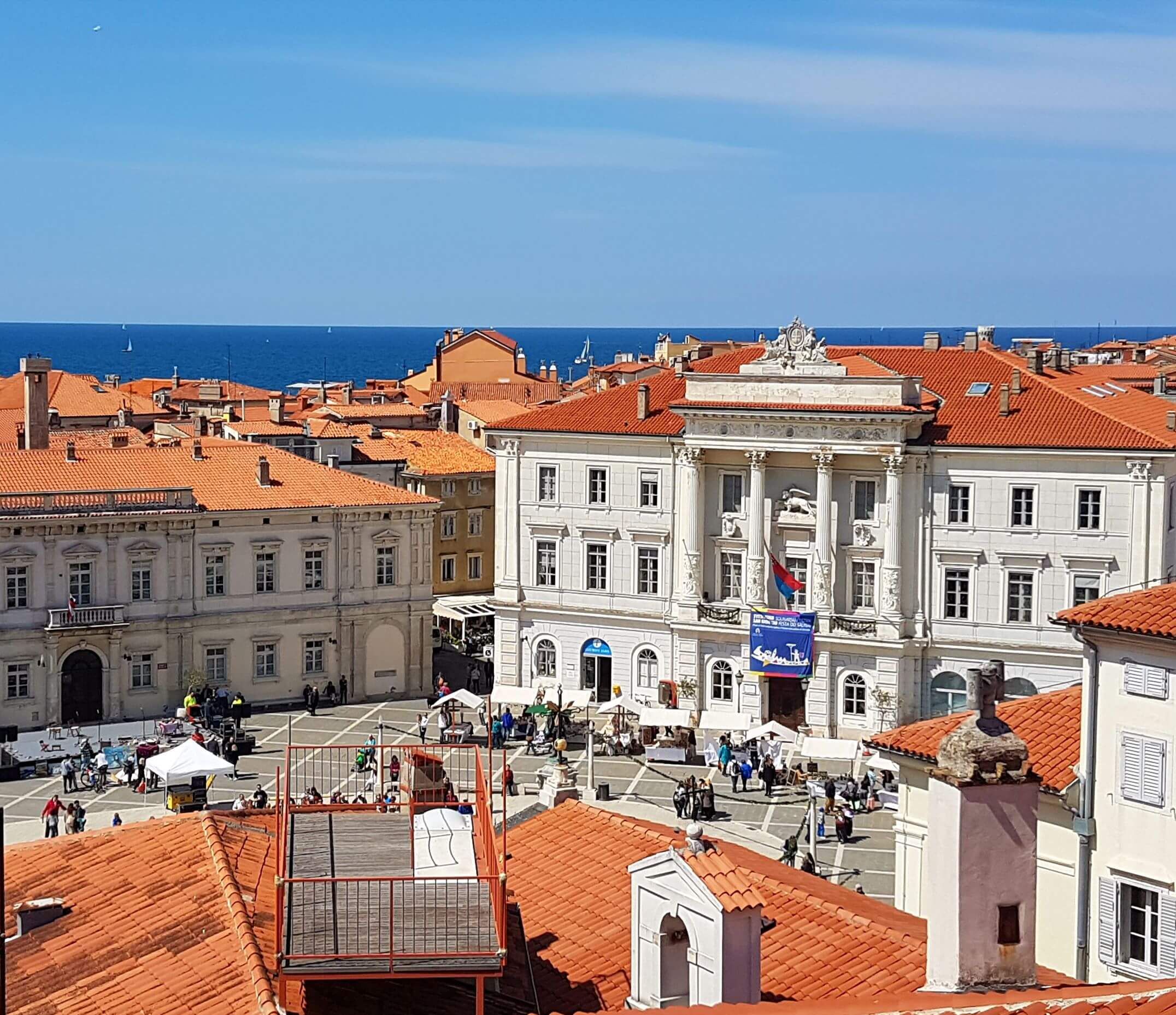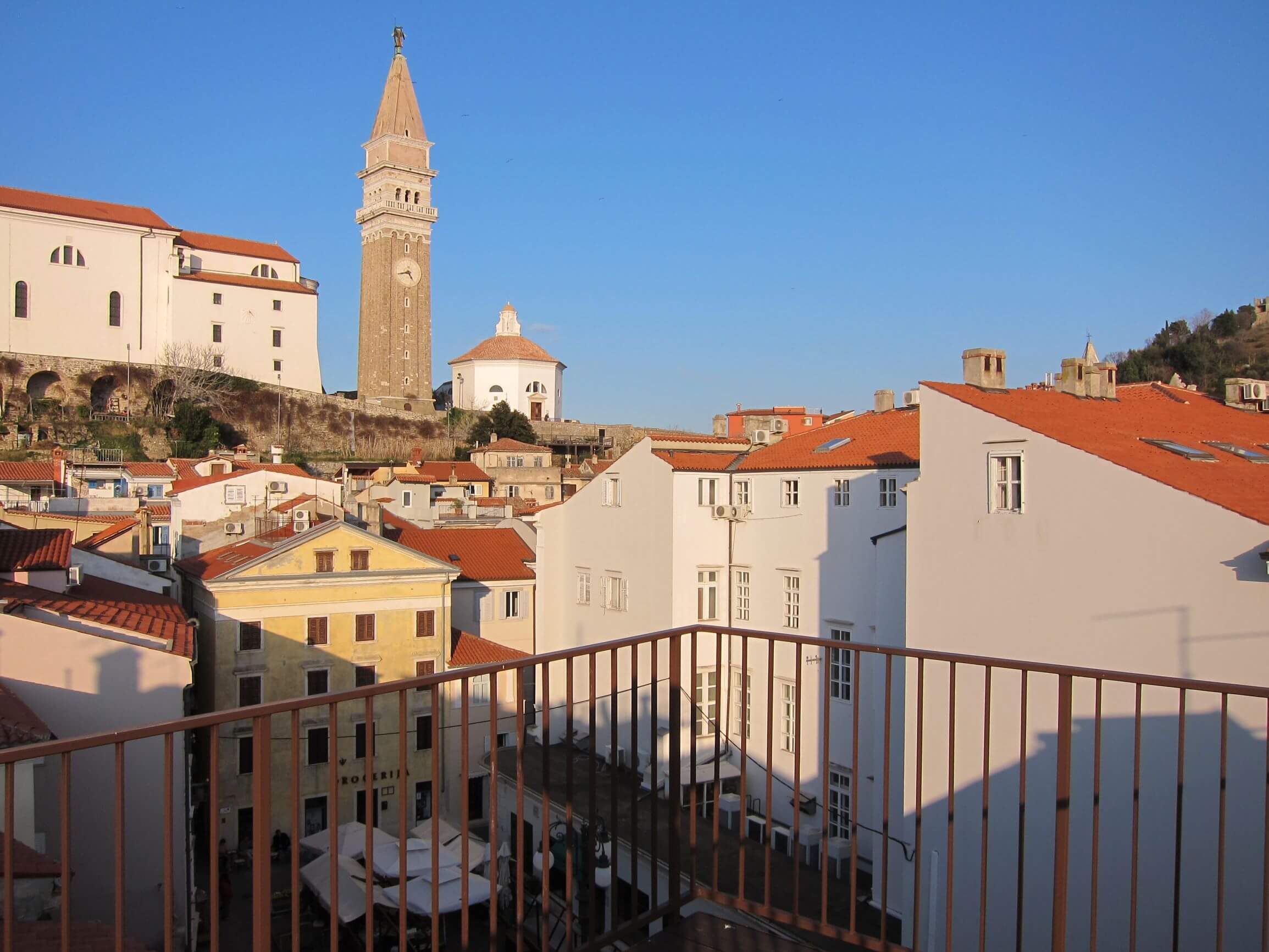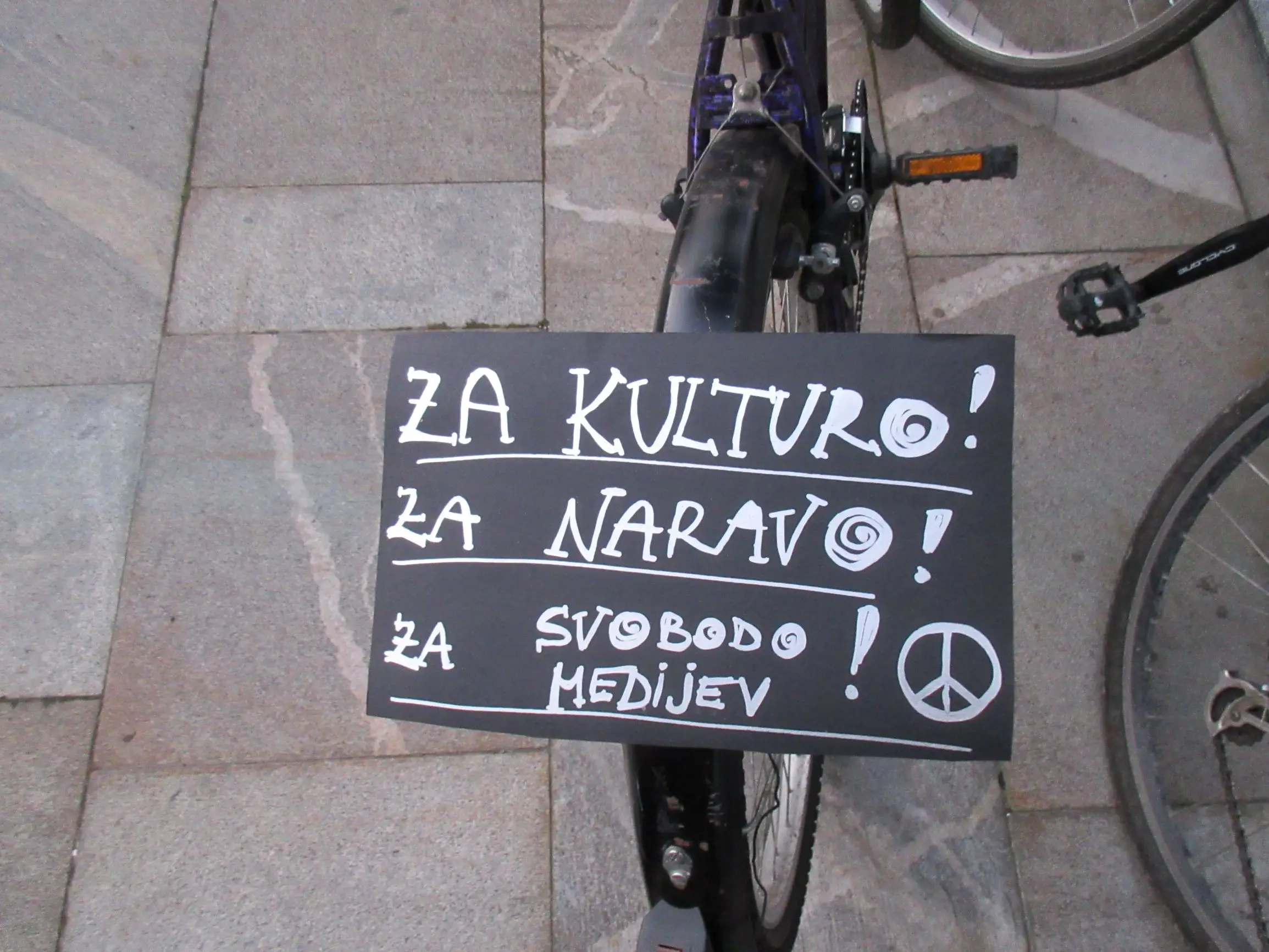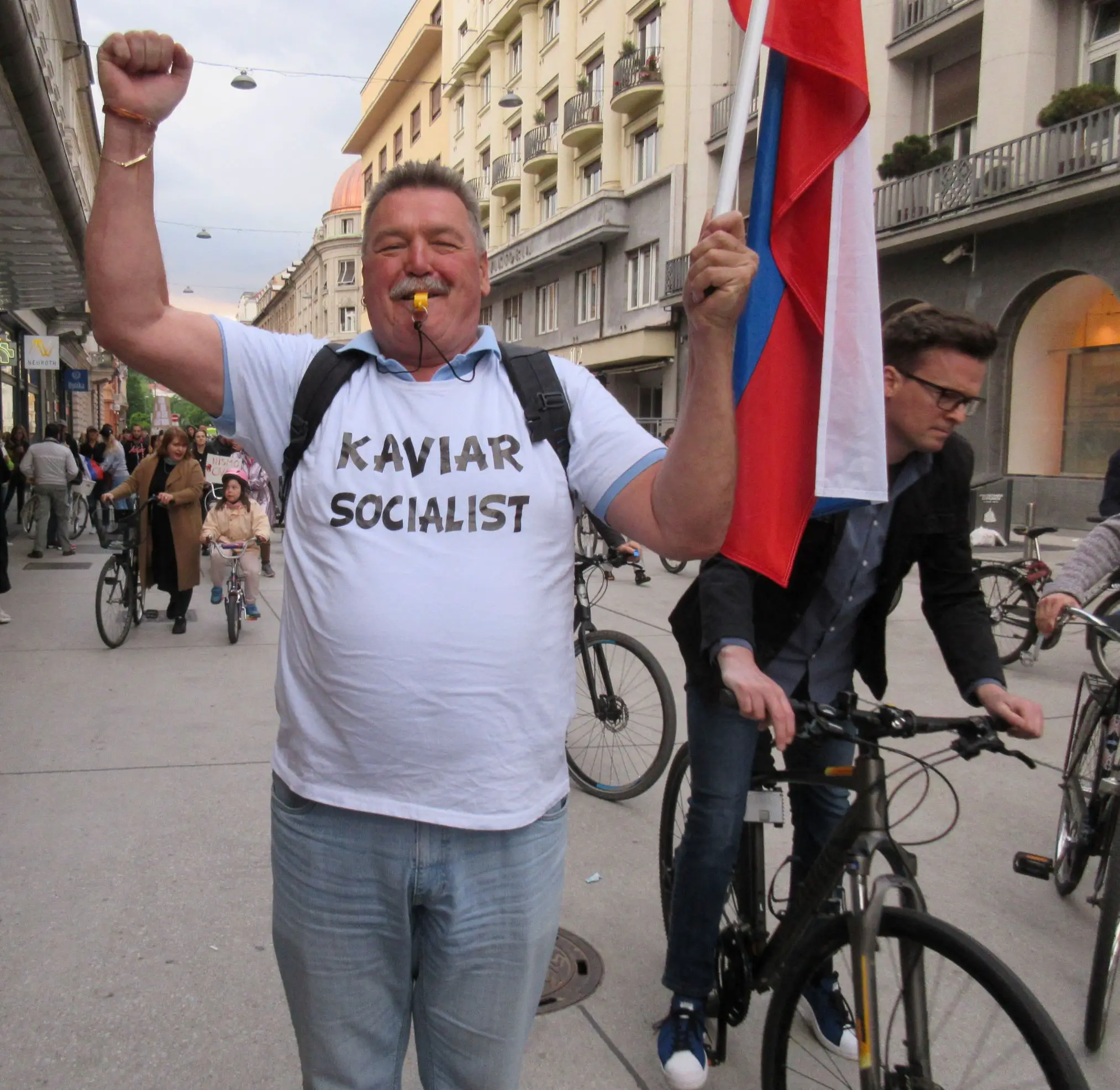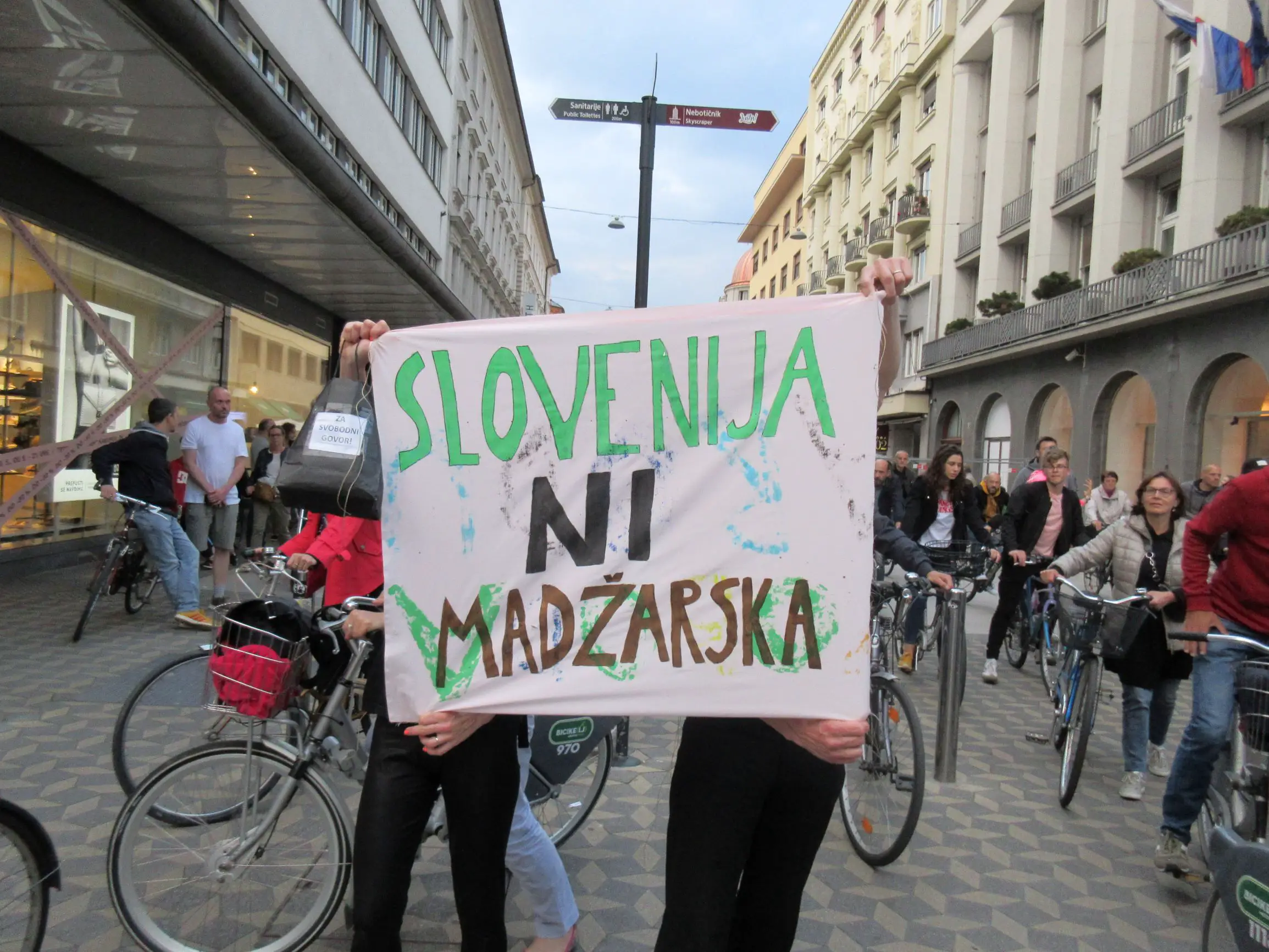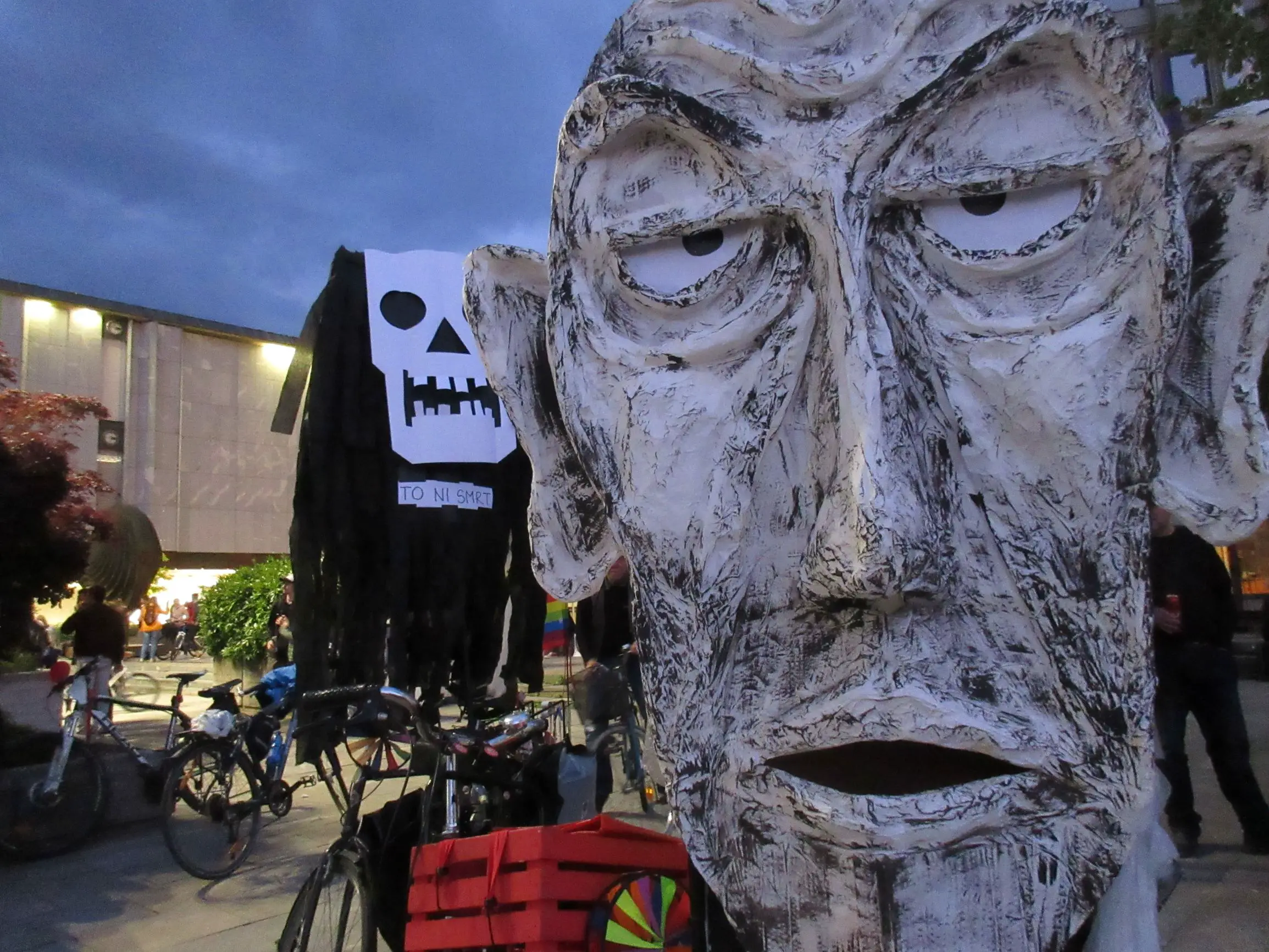FRIDAY, 22 May
PIRAN - The Slovenian and Croatian foreign ministers, Anže Logar and Gordan Grlić Radman, had their first meeting in person. They discussed the reopening of borders but offered no specific solutions as yet.
LJUBLJANA - Austria remains rather inflexible about reopening its border with Slovenia, although Slovenia's epidemiological situation is the same or even better than Austria's, Foreign Ministry spokesman Aleksander Geržina told the STA.
LJUBLJANA - President Borut Pahor and his Lithuanian counterpart Gitanas Nauseda highlighted the role of a joint European response to the economic fallout of the coronavirus pandemic in the EU as they spoke over the phone.
LJUBLJANA - The cycling protests against the government's actions and policies continued for the fifth Friday running, with several thousands protesters reported again in Ljubljana. PM Janša lashed out against the protesters by comparing them to the self-styled paramilitary units or nationalist home guards that recently made headlines, arguing both were extremely offensive to the police.
LJUBLJANA/LONDON, UK - Speaking to the BBC on 21 May, Slovenian PM Janez Janša said that tourism was the mainstay of Slovenia's economy and announced that the season would kick off on 1 June, and assured that holidaying in Slovenia would be safe in the wake of the coronavirus crisis.
LJUBLJANA - The energy group Petrol saw its sales revenue drop by 15% year on year to EUR 916 million in the first quarter, due to lower prices and a drop in the sale of petroleum products. Still, net profit of the group was up 20% to EUR 21.8 million.
LJUBLJANA - The central bank amended the rules for calculating creditworthiness, allowing banks to exclude the months with temporary lower income of their clients from creditworthiness calculations.
LJUBLJANA - As many as 66% of those polled by market research agency Aragon are against coronavirus contact-tracing apps, labelling them a harsh encroachment on privacy and a violation of human rights. Some 31% meanwhile consider them a necessary measure to contain the spread of the virus.
SATURDAY, 23 May
LJUBLJANA - Bojana Beović, the head of the Health Ministry advisory task force for coronavirus, told the STA that all efforts should be directed at preventing another nation-wide lockdown if a second wave of the coronavirus epidemic occurs.
LJUBLJANA - Although the party is well below the parliament threshold in recent surveys, coalition Modern Centre Party (SMC) president Zdravko Počivalšek believes that the threshold is reachable even if elections were held now.
LJUBLJANA - Union of European Football Associations (UEFA) president Aleksander Čeferin told the newspaper Dnevnik that football with fans in the stands could hopefully return by the autumn. He also denied speculations that he was interested in entering politics.
SUNDAY, 24 May
LJUBLJANA - President Borut Pahor told commercial broadcaster POP TV that self-styled uniformed village guards or militias should not be allowed in Slovenia. He thinks such activities should be banned by law.
AJDOVŠČINA - Bia Separations, a Slovenian biotechnology company, announced it would expand its production facilities in Ajdovščina and Italy's Gorizia due to increased demand. The company's investment plans to launch production in the US have been put on hold due to the coronavirus pandemic, but will go ahead as soon as possible.
MONDAY, 25 May
LJUBLJANA - Interior Minister Aleš Hojs discussed the opening of the border with his Austrian counterpart Karl Nehammer, with the latter saying that Austria was worried that Italians and illegal migrants would enter Austria via Slovenia and Croatia. LJUBLJANA - In his first questions time in parliament since taking office in March, Prime Minister Janez Janša told MPs there was not enough money in the budget to compensate for all losses incurred by the coronavirus pandemic, but that the government could mitigate the consequences to the greatest extent possible. He said no major cuts into people's income was planned.
LJUBLJANA/TRIESTE, Italy - The Slovenian Armed Forces (SAF) denied its member being involved in an incident near the border with Italy in early May after the Trieste-based newspaper Primorski Dnevnik reported that a dual Slovenian-Italian citizen had been stopped at gunpoint by a man in a military uniform in the Hrpelje-Kozina community.
LJUBLJANA - Interior Minister Aleš Hojs told the weekly Reporter that he expects the authorities to take action against the organisers of the mass anti-government protests on bicycles.
LJUBLJANA - Labour Minister Janez Cigler Kralj and Health Minister Tomaž Gantar defended action to contain the spread of coronavirus at care homes in parliament as the opposition sought answers about the high proportion of Covid-19 fatalities at care homes and about media reports that care home residents had allegedly been listed as to who should get hospital treatment and who not if infected. Gantar denied the existence of such lists.
LJUBLJANA - PM Janez Janša announced potential changes to tax legislation and media funding as he gave a weekly interview with the private broadcaster Nova24TV. He said, however, that fast tax cuts could not be made due to the coronacrisis and said the Culture Ministry was already working on changes to public broadcaster funding.
LJUBLJANA - The Covid-19 lockdown meant Slovenia recorded no tourist arrivals in April, while the number of recorded overnight stays was 11,000. This is 99% less that in April 2019 and was mostly accounted for by ongoing student exchange programmes.
LJUBLJANA - A sharp increase in Slovenia's registered unemployment total caused by the coronavirus crisis was brought to a halt last week with the weekly figure rising only by 59 to 90,272 compared to the previous week, according to interim data from the Employment Service.
LJUBLJANA - After plummeting by an unprecedented 35.8 percentage points in April, business sentiment in Slovenia improved somewhat in May, with the relevant index standing at -33.1 percentage points, or 6.5 points higher than in April and 40.8 percentage points lower year-on-year.
LJUBLJANA - Electricity consumption in Slovenia declined by 15% year-on-year in April, the first full month of coronavirus lockdown, and by 19% compared to March, an indication of a sharp decline in economic activity, Statistics Office data show.
TUESDAY, 26 May
LJUBLJANA - The government added new exemptions to the quarantine requirement for EU and Schengen zone citizens that in effect allow citizens from across the EU to enter the country as tourists, as long as they have a confirmation of booking. The same applies to owners of property in Slovenia.
LJUBLJANA - Interior Minister Aleš Hojs talked over the phone with his Maltese counterpart Byron Camilleri. While the latter urged Slovenia to help with the relocation of migrants rescued at sea, Hojs said Slovenia's capacities were full and it could not do that at present.
BRUSSELS, Belgium - Slovenia pledged a humanitarian contribution of EUR 10,000 as part of an international donor conference in solidarity with Venezuelan refugees and migrants in countries in Latin America and the Caribbean.
LJUBLJANA - In the first four months of 2020, the Slovenian police recorded 2,394 illegal crossings of the border, which is almost 25% less than in the same period last year. The decline is at least partially a consequence of the coronavirus pandemic and the related stricter measures on the border.
LJUBLJANA - The government received a letter from the Green 10, a coalition of ten of the largest environmental NGOs in Europe, which expresses concern over pending legal provisions limiting the involvement of NGOs in environmental permit procedures.
LJUBLJANA - The Chamber of Small Business (OZS) called on the government to start working on a fourth stimulus package to help the industries that have not been covered in the third stimulus package.
LJUBLJANA - Culture workers covered the front of the building housing the Ministry of Culture with hundreds of pieces of paper with appeals for action to help the sector hit hard by the coronavirus pandemic as part of a protest targeting what the organisers described as the ministry's silence and inaction.
LJUBLJANA - Slovenia placed seventh according in the 2020 KidsRights Index, released by the KidsRights Foundation, an international children's aid and advocacy NGO. The country received 0.897 points overall, chalking up the highest score in protection and the lowest in the child rights environment category.
WEDNESDAY, 27 May
BRUSSELS, Belgium - Slovenia will be eligible to receive EUR 5.071 billion from the EU's coronavirus recovery plan, according to European Commission documents. It will be able to receive EUR 2.579 billion in grants and EUR 2.492 billion in loans.
LJUBLJANA - The National Assembly passed a set of changes limiting the involvement of environmental NGOs in administrative and court proceedings. Under the changes, public interest status will be recognised only for groups with at least 50 members, at least EUR 10,000 of assets, at least two fully employed persons who have tertiary education level degrees and two years of experience in environmental protection.
LJUBLJANA - The Foreign Ministry would not comment on a new remembrance day declared by the Trieste city council. The Slovenian Cultural and Economic Association (SKGZ), one of the central organisations of the Slovenian ethnic minority in Italy, said the holiday was divisive and "reviving old conflicts".
LJUBLJANA - Defence Minister Matej Tonin spoke with his German counterpart Annegret Kramp-Karrenbauer via videolink to express satisfaction with the countries' cooperation in defence and look for opportunities to strengthen it further.
LJUBLJANA - Parliament confirmed Klemen Podobnik as the candidate for one of two Slovenian judges at the EU's General Court in Luxembourg. The remaining two nominees, Jure Vidmar and Nina Savin Bossiere, failed to secure the absolute majority required.
LJUBLJANA - Marko Bošnjak, one of the five vice-governors of Slovenia's central bank, tendered his resignation in the aftermath of accusations that he evaded taxes on rental income.
LJUBLJANA - Heads of the parliamentary deputy groups and parliamentary Speaker Igor Zorčič discussed reforming the electoral law, with a majority agreeing that the relevant ministry should be tasked with drafting proposals for redefining the electoral districts. A day later Zorčič and President Borut Pahor urged all stakeholders to find a solution by December.
LJUBLJANA - Retail sales plunged by 22.6% year-on-year in April to the lowest level since 2006, show fresh Statistics Office data. At the monthly level the decline was 8.8%, following a 12% contraction in March.
THURSDAY, 28 May
LJUBLJANA - Dejan Židan resigned as the leader of the opposition Social Democrats. Vice-president Tanja Fajon, an MEP, will run the party for the time being at his request. Židan said he saw the change of leadership as an opportunity for the party to gain in the polls.
DOLGA VAS - Slovenia and Hungary lifted restrictions on the crossing of state border for the citizens of both countries based on a favourable epidemiological situation in both countries. The announcement came after talks between the Slovenian and Hungarian foreign ministers, Anže Logar and Peter Szijjarto.
LJUBLJANA - The government decided that primary schools would open in full next week. It also allowed the gathering of up to 200 people. Hotels, gyms and spas will also open on Monday. The only establishments that will remain closed are night clubs.
LJUBLJANA - The parliamentary Labour Committee okayed the EUR 1 billion third stimulus package, which provides a short-time work scheme and support to the tourism sector, primarily in the form of tourist vouchers for all residents.
LJUBLJANA - The SID Banka export and development bank has secured EUR 200 million in liquidity loans and another EUR 150 million in insurance and re-insurance deals to sole traders, SMEs and big companies as well as cooperatives during the Covid-19 epidemic.
LJUBLJANA - The retail group Mercator generated EUR 1.1 million in net profit in the first quarter of 2020 after a net loss of EUR 3.7 million in the same period last year. Revenue increased by 10.8% to top EUR 530.48 million.
BRUSSELS, Belgium - The European Commission increased more than five-fold the Just Transition Mechanism funds for Slovenia, from EUR 92 million to EUR 538 million.
LJUBLJANA - Ernest Petrič, a seasoned diplomat and former Constitutional Court judge who is currently an adviser to President Borut Pahor, was named by the government as Slovenia's member of the Venice Commission, an advisory body of the Council of Europe, for a four-year term.



